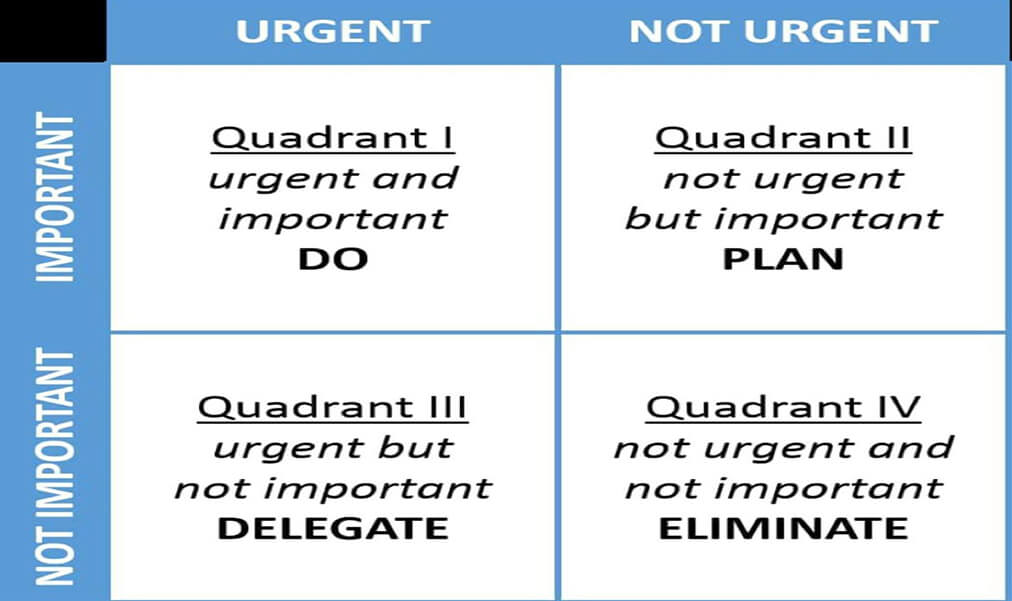Can We Say Time Management Is An Illusion?

We live immersed in a world where speed is a supreme value and where the culture reigns that time does not reach us, and it is our enemy. All of this is becoming the axis of our lives.
The concept of time is a conventionalism that most of society has reached.
The concern to manage it effectively has been a constant in the history of the human being, which was defined in various ways by many thinkers in an attempt to want to control it.
According to Aristotle, time is the measure of movement before and after. For him, if nothing happened, there was no time.
There are also two types of antagonistic ways of seeing it:
- The Anglo-European or linear (through time) is segmented, used, spent, and lost. Today in big cities, we use this tense, which emerged in pre-industrial times. The individual is outside the timeline. He has to go through it.
- The Arabic or oriental time (in time) is the way of perceiving the time of the Arabs, orientals, and the style of the Latins in general. When the individual is ‘In time,’ time is what passes. The person places himself within time and perceives it as what is happening. For example, when it is ready, we will have a meeting—neither before nor after. The person ‘in time’ is associated with the present. What matters to him is what happens to him here and now.
We call the hours that pass external time and the experience of that time that seems to us an instant or an eternity. We will call it internal time.
None can manage time because time management is an illusion.
Is Time Management An Illusion?
Time continues to move at the same rate despite who we are or what we are trying to accomplish.
We have 24 hours in a day. Further, each hour lasts 60 minutes, and each minute lasts 60 seconds for all the earth’s inhabitants.
Time management is not at all what we manage, as it is only our illusion. However, the tasks we can do in that time and the actions we can carry out to optimize it and become more efficient.
The employee’s life entails constantly keeping an eye on the clock and the calendar. Meetings, deadlines, achievements, assignments, issues, and long team projects are endless tasks that, most of the time, accumulate and make us fall into permanently overwhelmed and the stress of not getting everything done.
So what would happen if we started to see time as an ally? Would it change our day? Would we be happier?
Several beliefs limit us when it comes to time management effectively apart from an illusion:
Activity Belief
The most active employee is the most efficient. Results need to be clarified with activity to get nowhere.
Team Man Belief
The higher the level at which matters are handled, the better.
It does not delegate and intends to do things oneself to be in everything: invading jobs and demotivating the work team.
Postponed Decision Belief
We must postpone decisions until all the data has been collected. What happens is that it is not decided in time, or it is never decided.
It is closely related to procrastination or postponing tasks, which is often due to excessive perfectionism.
The Belief The Indispensable
The results are directly proportional to the volume of work invested, so we work 12 hours daily.
The interest is focused on working more instead of working better, resulting in fatigue that causes us to act this way since working more hours is not a good strategy for managing our time effectively. It is because we lose focus and tasks that we can finish in two hours, it can take us days to complete them.
The Belief In Working Against Time
Time puts pressure on the employee: it is upon him.
The most precious resource is a hindrance and object of justification when taking time as an ally would be much easier.
And Where Is The Key To Being Able To Manage It Better?
The key is in the planning. Plan our time and make it our ally.
Planning is the simplest and cheapest remedy we have to manage our time better and become more efficient.
It consists of establishing forecasts to achieve the desired objectives instead of being limited to reacting to the events or circumstances that arise. The person must direct his work, not the work that drags him.
On the other hand, the lack of planning places us in a paradox: you don’t plan because you don’t have time, but you won’t have more time if you don’t plan.
It is important to plan what is important to me, what gives meaning to our lives, and what gives meaning to our profession.
For this, a very valuable tool is the time matrix that Stephen Covey has explained in Seven Habits of Highly Effective People book.
He shares with us this table in which we are going to move on four quadrants:
- The urgent and important.
- What is important and not urgent.
- What is not important and urgent.
- What is not important and not urgent.

How Is The Matrix Interpreted According To Covey?
We must plan what is important and not urgent for our professional goals, located in quadrant 2. It is what gives meaning to our profession, what causes us well-being. Thus we are going to live day to day, with much less urgency, located in quadrant 1, which leads us to live with permanent stress and with the attitude of firefighters, putting out fires 24 hours a day.
We must also delegate everything that is in quadrant 3, for example, those calls that are not urgent that another person can answer.
And concerning the last quadrant, 4, we must eliminate it; in it are the unimportant emails, chats, social networks, and time thieves. Learning to identify them is very important since we can work on planning once detected.
There are external time thieves: the excessive flow of papers, telephone, chat, Facebook, Twitter, YouTube, watching television, unnecessary meetings, communication failures, etc.
Internal time stealers speak about not listening, excessive socializing, delaying, and indecisiveness. They also speak of low confidence, inability to speak negatively, and lack of self-discipline. Further, we need more priorities, plans, unclear goals, trying to do multiple things simultaneously, lack of skill and knowledge, etc.
Reflecting on the time matrix, we have to learn how you can realize which quadrant you perform more frequently. Further, make sure that you would like to change to be more effective.
Suppose we become aware that we will no longer recover every second that passes. In that case, we manage to plan what is important to us, turning the concept of time into an invitation to give ourselves to it with flexibility and openness. It will become our ally. The reason is that we can make creative decisions that ensure a greater probability of success, bringing well-being to our personal and professional lives.














